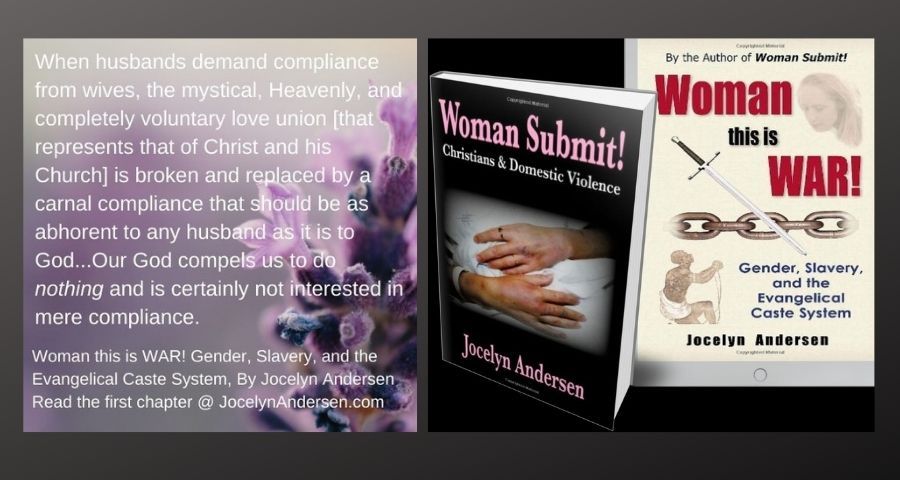Luke 23:27 And there
followed him a great company of people and of women[1]
who also bewailed and lamented him
[1] It is
not insignificant that the scriptures, breathed by God, should single out women
in this verse as a prominent part of the crowd following Jesus to his
crucifixion, bewailing and lamenting him. Although the scriptures record Jesus
turning men back from joining his band of disciples, there is no record that he
ever told a single woman to turn from following him and go back home. Womankind
was the first minority oppressed by sin, and womankind was the first to be set
free by the manchild that the first woman audawm
ishshaw (later named Eve [see
untranslated words under special features of this commentary]) was told by YHWH Elohiym
would be born of her to set free from the awful curse of sin and restore all
things back to perfection. Jesus was the first feminist—The great emancipator
of women
Definition of Feminist: One who advocates for absolute equality of the sexes
Special
Features of the HHBC
The main body of scripture text in this commentary is
based on the Received Text (Textus Receptus) of the NT and the Ben Chayyim
Masoretic text of the OT as found in the Original *Strong’s Concordance, 1894,
by James Strong, and compared diligently with the work of respected scholars.
Archaic language is updated in most cases, but The AV
is followed unchanged where the language and sense of the translation is clear
to the modern reader.
Where a Hebrew or Greek word has no good English
equivalent, the original word is left untranslated, in italics, with the *Strong’s Greek [G] or Hebrew [H] reference
number notated beside it.
Where the Old Covenant is quoted in the New Testament,
the Hebrew words may be used and left untranslated
The words of Jesus are in bold print
Scripture cross-references are noted in line with the
text
There is little punctuation used in the main body of
the scripture-commentary text
Brackets [ ] indicate alternate rendering or short commentary
Longer commentary is located in footnotes
*20th Century editions of this work, such
as, The New Updated Strong’s, and, The Strongest Strong’s, are not referenced
in the HHBT as they do not relate to the Textus Receptus or the Ben Chayyim
Masoretic Text this commentary is based upon.
List of Untranslated Words in the HHBC
Adam H120 Pronounced “audawm” The name of the first man,
and, more importantly, the name God gave to both
the first man and the first woman; the entire human race; mixed crowds in the
Hebrew are also referred to as audawm. In the HHBC Hebrew text, when H120 is
used in reference to groups of both females and males, or of the human race in
general, the phonetic spelling of “audawm” will be used in place of androcentric
words such as mankind or human race. The word “Adam” will be used only when the
text is specifically referencing the first man.
'ishshah Hebrew for woman/wife, but not exclusively so. The word is also used for mixed crowds of both females and males, and therefore, can also be used as gender neutral, as context allows, just as the words adam and iysh are seen in gender neutral biblical usage. Context must determine translation.
Iysh Hebrew for man/husband/mixed crowds
of both women and men/homosapiens in general
YHWH H3068 (known as the Tetragrammaton) Yahweh; The true
name of the name of the Almighty; Known to scholars as the Tetragrammaton; the
correct pronunciation is, Yahveh.” This pronunciation has never been lost,
according to Jewish scholar, Kaufmann Kohler. In the HHBC, any New Testament
citing of the Hebrew Tetragrammaton from an Old Covenant source will be treated
as Hebrew. The letters YHWH will be used in the verse in place of LORD.


No comments:
Post a Comment